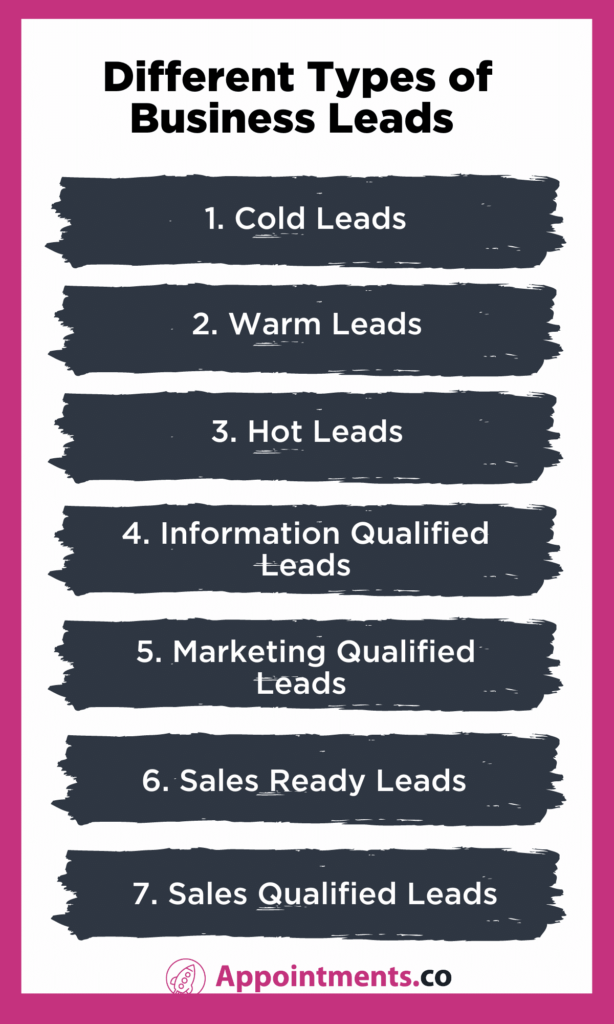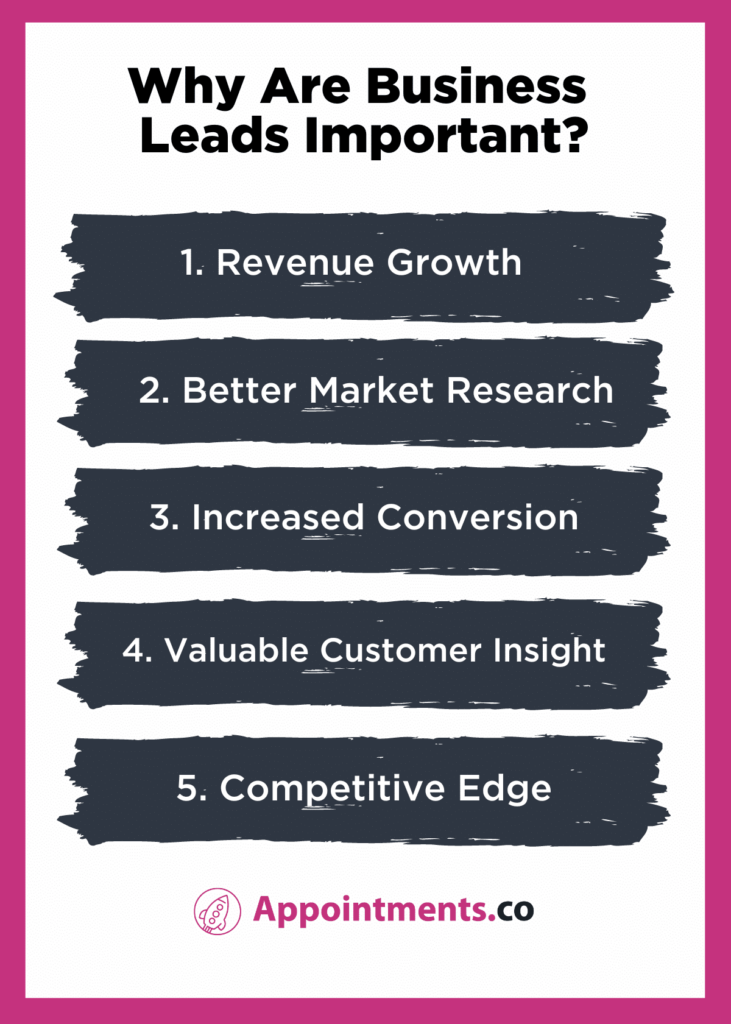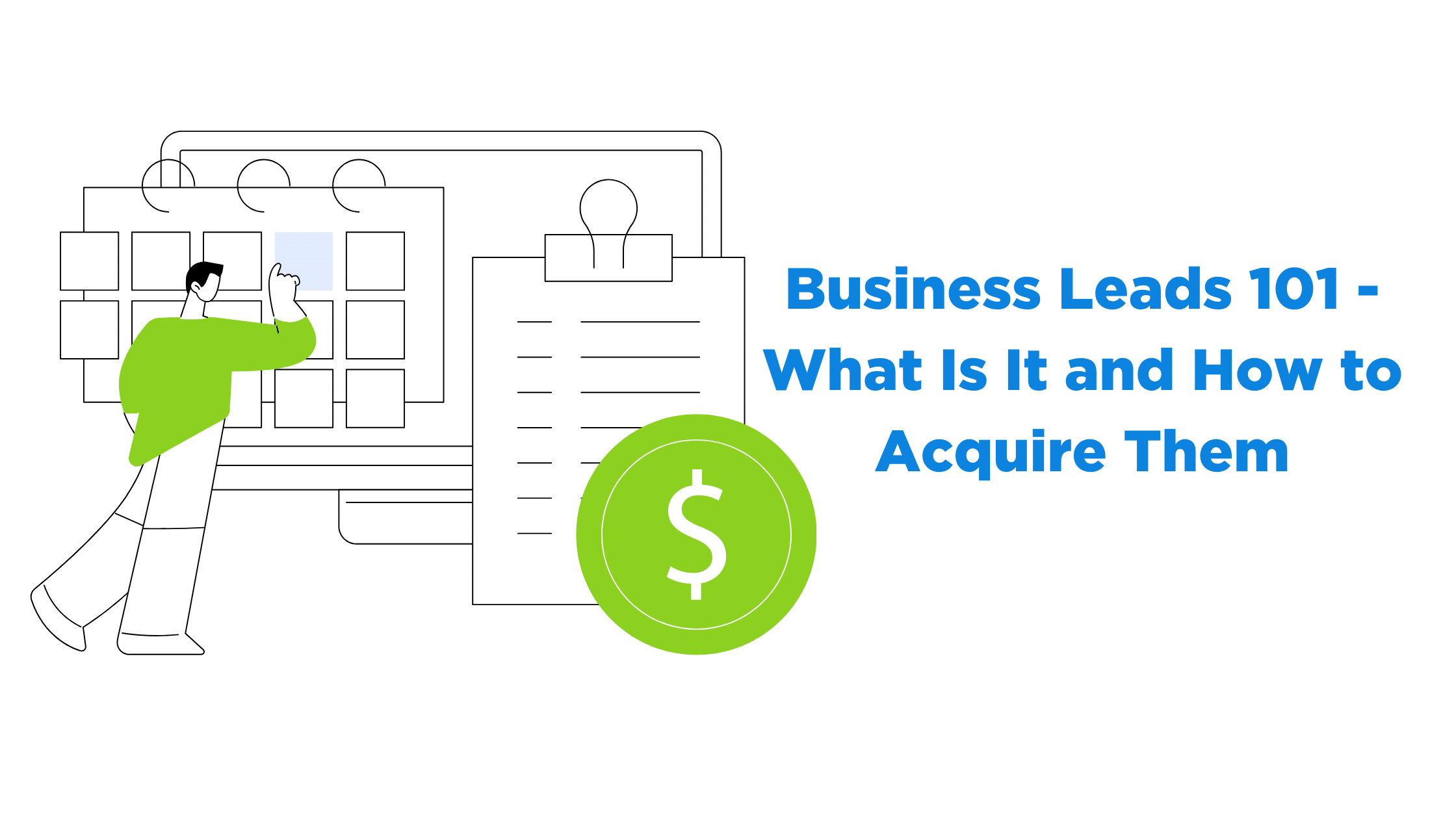The success of every business starts with business leads, not only in finding the right potential clients but also continuing to do so. You have various tools and platforms to attract potential customers who are interested in your products or services. These business leads are important because they have the potential to become your paying customers in the future.
It is important for any business to effectively nurture and manage these business leads in order to convert them into paying customers. In this article, you can explore the definition of business leads, their importance, and the steps that you can take to generate, nurture, and manage leads successfully.
Table of Contents
- What are Business Leads
- What Are the Different Types of Business Leads?
- How to Generate Business Leads
- Why Are Business Leads Important?
- Frequently Asked Questions
- Utilize Sales Opportunities to Generate Business Leads
What Are Business Leads?
Business leads, also known as sales leads, are potential customers who have shown significant interest in your company’s product or services and have high chances of converting into paying customers.
In this digital era, there are multiple lead generation tools and platforms you can use to generate leads, like social media, email marketing, and search engines. However, there’s more to the sales process than just generating leads. Here are some common, but important steps in the sales process:
- Prospecting
- Approach
- Presentation
- Objection
- Closing Follow-ups
What Are the Different Types of Business Leads?
These are six business leads characterized into different types so you can easily identify and understand the needs of the potential business leads, and provide them with proper solutions to convert them into your customers.

1. Cold Leads
Cold leads are potential customers who fit your target audience but haven’t shown interest in your company. Converting them can be challenging, as they haven’t engaged with your business before. You can nurture them with top-of-funnel content, like blogs or social media posts, as well as through cold emails or calls to familiarize them with your product or service.
2. Warm Leads
Warm leads are more familiar with your company, and what it has to offer than cold leads. They may have already visited your website, followed you on social media, or engaged with your content. To convert them, include calls to action in your content and reach out directly through personalized emails or calls.
3. Hot Leads
Hot leads are highly interested in your product or service and are actively considering making a purchase. They may interact with your sales team and may be willing to utilize free trials. At this stage, you can openly encourage them to buy, highlighting the advantages of your product or service and what sets you apart from your competitors.
4. Information Qualified Leads (IQL)
Information-qualified leads (IQLs) are at the top of the sales funnel and seek answers or solutions to their questions or problems. To attract these leads, you should focus on creating informative content, such as blog posts and videos. Rather than directly talking to them with a sales pitch, you can provide the answers they are looking for while showcasing your expertise. By demonstrating your knowledge, you increase the chances that they will remember and consider your services when they require them in the future.
5. Marketing Qualified Leads (MQL)
Marketing Qualified Leads are further along the sales funnel and familiar with your brand. Blend informational and sales content to market to them. Encourage email sign-ups and offer product demos for increased familiarity.
6. Sales Ready Leads (SRL)
Sales-ready leads (SRLs), also known as sales-qualified leads (SQLs), are prospects deemed ready to make a purchase by the sales team. They have likely engaged in activities, such as demos, phone calls, or in-person meetings with a sales representative. SRLs represent a significant opportunity for conversion and revenue.
SQLs are near the bottom of the sales funnel and have shown active interest. You can use direct sales pitches, such as phone calls or meetings, to convey your interest in working with them.
7. Sales Qualified Leads (SQL)
SQLs are near the bottom of the sales funnel and have shown active interest. You can use direct sales pitches, such as phone calls or meetings, to convey your interest in working with them.
How to Generate Business Leads
Generating business leads includes attracting prospects and nurturing them to increase their interest in your business, with the ultimate goal of converting these potential business leads into customers.
Here are some of the best lead-generation strategies for you to generate more business leads:
1. Ask for customer referrals.
2. Identify sales leads through networking opportunities.
3. Utilize networking events to engage with business leads.
4. Revisit lost deals and customers.
5. Find leads through social media networks.
6. Attract your ideal leads by optimizing your social media profile.
7. Run email campaigns.
8. Provide valuable quality content, like articles and blogs.
9. Host online webinars and workshops.
10. Connect with your live chat users on the website.
Why Are Business Leads Important?
Regardless of any type of business in any industry, leads play a major role in the success of an organization. Some important factors that are secondary to lead generation are lead distribution, nurturing, and scoring. Lead generation is the most crucial step to getting more leads from the market, so here are some critical reasons why it is important for your business:

1. Revenue Growth
Acquiring business leads is crucial for the success of your company’s sales process. It plays a vital role in accelerating revenue growth by ensuring a consistent flow of potential customers. Without a steady stream of leads, your sales team faces challenges when it comes to meeting their targets and generating revenue.
2. Better Market Research
Generating new leads allows businesses to explore untapped markets to broaden their customer reach. This strategy aids in enhancing brand awareness, fostering customer loyalty, and encouraging repeat business.
3. Increased Conversion
Lead generation is an essential aspect for all businesses when considering what a lead is. It offers valuable data and insight into the behavior and preferences of your potential customers. This information can be utilized to make informed decisions based on data, so you can enhance your marketing and sales strategies.
4. Valuable customer insight
Efficient lead management and nurturing play a crucial role in converting more prospects into paying customers. This leads to improved efficiency, reduced costs, and maximized return on investment (ROI) for businesses.
5. Competitive Edge
When you generate high-quality leads, it gives you an advantage over your competition, which is reaching out to new markets and building relationships with potential customers, so you can set your business apart from other businesses in your industry, and capture a larger share of the market.
How to Identify Business Leads
Brands employ various marketing strategies to attract individuals to their offers. The crucial aspect is to utilize tactics that enable the collection of consumer contact information, facilitating follow-up by the sales team. Follow these steps to identify potential individuals who could be interested in your brand:
1. Through Customer Referral and Reward Programs
You can simply reach out to loyal customers and ask them to refer your company to their friends and family. You can also create a reward system to motivate more people to share the positive experiences they had with your business.
For instance, you can offer a discount for each successful referral. This not only brings in new potential leads but also encourages existing customers to be more loyal.
2. Through Social Media
Building a high-quality website is an important aspect of achieving higher rankings on search engines, like Google or Bing. Ensure that your website is user-friendly and easily accessible. Additionally, consider incorporating original content, such as a blog section, to attract more visitors. By creating engaging content with relevant keywords, you can increase organic search traffic to your website and it’s important to focus on creating content that appeals to your target audience.
3. Through Landing Pages
You can guide your website, visitors, when they click on one of your ads, to a landing page where they can access additional information. The purpose of this landing page is to capture their interest and encourage them to either sign up for your email newsletter or provide their contact details. Including a compelling call to action can significantly increase the number of people who engage with your brand.
4. Through Organic Traffic
A quality website helps improve search engine rankings. Make your site user-friendly and publish original content, like a blog, with relevant keywords. This attracts more organic traffic and engages your target audience.
Frequently Asked Questions
1. How do I generate business leads for my business?
Some of the most effective ways for you to generate business leads are:
– Referrals from loyal customers
– Nurturing existing leads and past referrals
– Keeping in touch with customer care calls
– A trustworthy source of information for customers
– Being social and networking online
2. What are the types of leads?
There are 7 types of business leads for your business:
– Cold leads
– Hot leads
– Warm leads
– Information qualified leads
– Marketing qualified leads
– Sales-ready leads (Sales qualified leads)
3. What are B2B leads?
B2B leads refer to individuals, organizations, or businesses that have the potential to become customers for B2B products or services. Unlike B2C sales, these leads typically involve other companies, rather than individual consumers
Utilize Sales Opportunities to Generate Business Leads
These are the methods and tips you can utilize to generate and acquire business leads. By implementing a combination of these strategies and consistently improving them, you can effectively connect with potential leads, establish relationships, and ultimately achieve conversions.
Recognizing the significance of business leads, as well as developing efficient lead generation and management strategies is crucial for any business. It is equally important to implement a good system for lead management.
If you have been looking for services that can help you boost your sales to another level, make sure to reach out to us for effective appointment-setting services that can help you close a sales deal.
Illustration – Storyset



